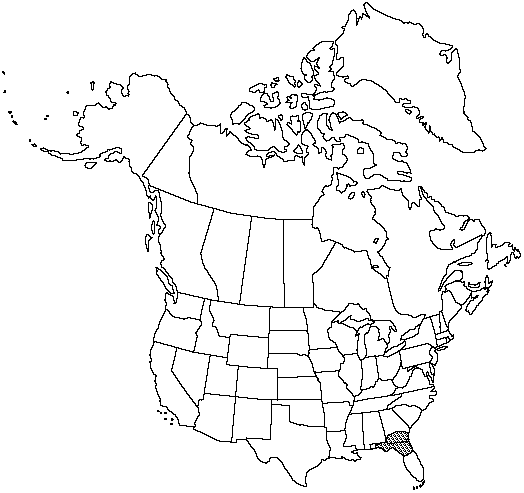Asplenium heterochroum
Linnaea 9: 67. 1834.
Roots not proliferous. Stems erect or ascending, rarely branched; scales black throughout, linear-lanceolate, 2–3 × 0.2–0.4 mm, margin entire, apex attenuate. Leaves monomorphic. Petiole black or purplish black throughout, lustrous, 0.3–5 cm, 1/4–1/15 length of blade; indument of black filiform scales at base. Blade linear or narrowly oblanceolate, 1-pinnate throughout, 6–22(–37) × 1–1.8(–2.3) cm, thin, glabrous; base tapered; apex acute, not rooting. Rachis black throughout, lustrous, glabrous. Pinnae in 15–40 pairs, oblong; medial pinnae somewhat asymmetric, oblong, 4–10 × 2–4(–5) mm; base acute, acroscopically enlarged; margins serrate to crenate, lobed; apex obtuse. Veins free, evident. Sori 3–6 pairs per pinna, on both basiscopic and acroscopic sides of pinnae. Spores 64 per sporangium. 2n = 144, 216.
Habitat: Sinkholes, limestone rocks in shady hammocks, masonry
Elevation: 0–50 m
Distribution

Fla., Ga., Mexico, West Indies in Cuba, Puerto Rico, Bermuda, Central America in Belize.
Discussion
The tetraploid cytotype (4 x) of Asplenium heterochroum hybridizes with A. resiliens (3 x) to produce A. × heteroresiliens (5 x). It is extremely rare and local, known in northern peninsular Florida from Alachua, Citrus, Columbia, Jackson, and Marion counties.
Selected References
None.